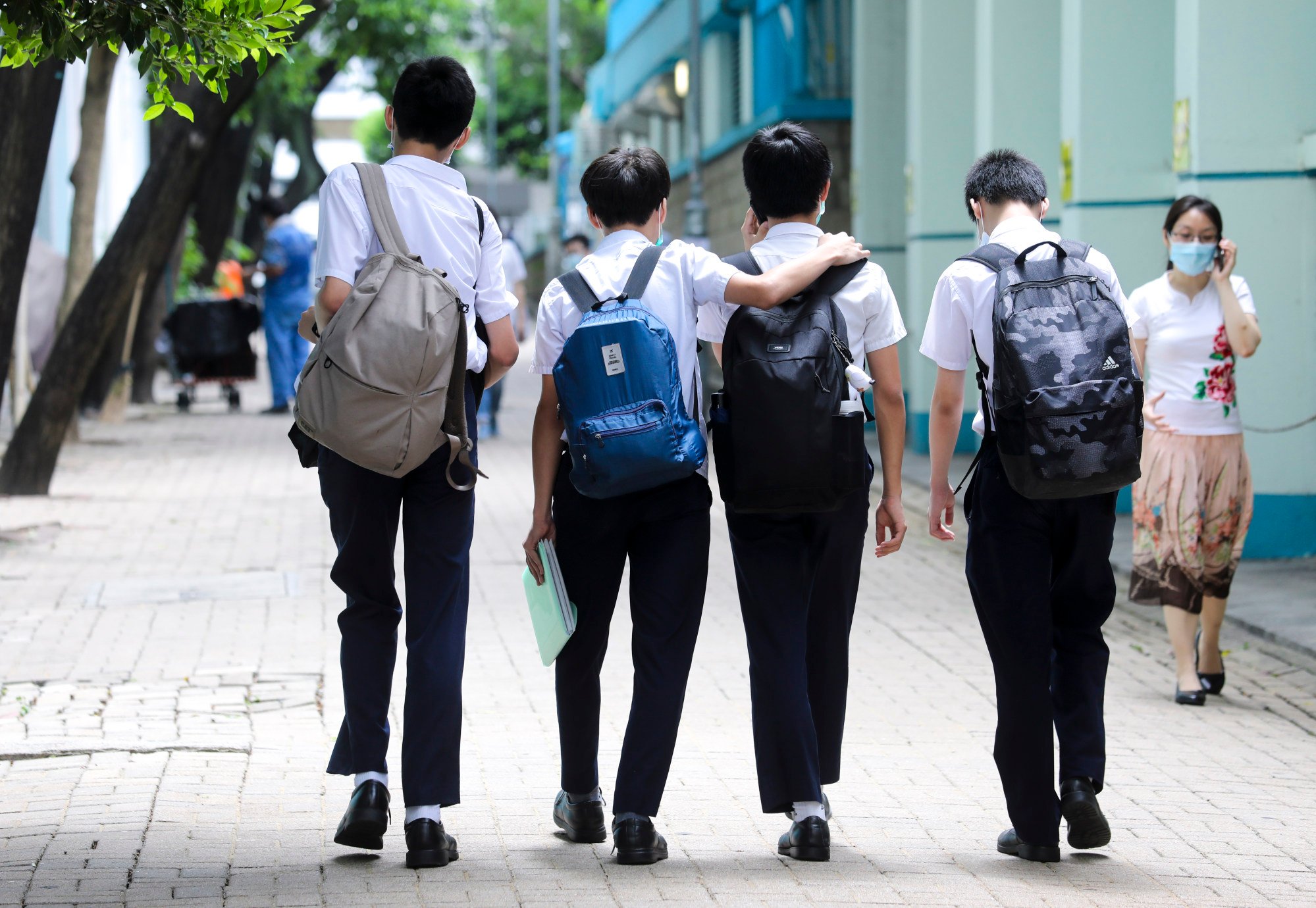
Hong Kong teen challenging school policy on long hair for boys lodges complaint to equality watchdog, citing ‘gender dysphoria’
- Student inspired by discrimination ruling from court in 2020 in favour of former opposition lawmaker ‘Long Hair’ Leung Kwok-hung
- Equal Opportunities Commission says it will not disclose any details regarding inquiries or complaints made
A teenager in Hong Kong who experienced gender dysphoria has lodged a rare complaint to the city’s equality watchdog challenging a school policy against long hair for male students, sparking heated discussions on whether educators have overlooked cases of mental distress among this community.
In an Instagram video that went viral on Wednesday after attracting nearly 380,000 views within a day of its release, the teen surnamed Lam recalled being forced to get a haircut to avoid suspension from school, adding that the Equal Opportunities Commission (EOC) was pursuing the complaint.
“The ban is not only discriminatory but also ignored reasons some male students hope to wear long hair. Gender dysphoria has been overlooked by schools and society in Hong Kong,” said Lam, who studies at Tung Wah Group of Hospitals Wong Fut Nam College, a subsidised school in Kowloon Tong.

The term describes a sense of unease that a person may experience because of a mismatch between their biological sex and gender identity. Lam had put “she/her” in the Instagram bio to indicate the pronouns preferred for use.
In a reply to the Post, the EOC said it would not disclose whether certain inquiries or complaints had been received, citing confidentiality.
Secretary for Education Christine Choi Yuk-lin on Wednesday said she believed the school could handle the matter professionally.
Without commenting on Lam’s case, she said: “Relevant rules were established according to schools’ own culture and value for education.”
The Form Five student had argued in the video that the school’s “unreasonable and outdated” dress-code policy violated the Sex Discrimination Ordinance.
“I was threatened that I could be barred from school activities or even get suspended as punishment. I was then forced to cut my hair 1½ months ago,” Lam said, adding that one teacher had issued a warning that the school would be “overwhelmed” if people decided to lodge complaints against its male students for having long hair.
Lam said the unease over the situation had triggered the decision to file an official complaint to the equality watchdog and was recently told the case was being pursued through formal investigation or mediation.
“It took immense courage for me to speak in front of you,” Lam said. “I look unconfident in this video that showed my ‘scars’, but I hope to advocate for abolishing long hair bans for male students and spark more discussion.”
Many Hong Kong schools require girls to tie up long hair and ban boys from having a fringe that touches their eyebrows.
Lam also argued that the usual grounds for schools to uphold similar bans were not substantiated, noting boys with long hair would not damage the reputation of any institution and the tidiness of each student did not depend on the length of their locks.
“Schools teach students not to judge others based on the way they look, but at the same time worry that their hairstyle might affect schools’ reputations. Isn’t it self-contradictory?” Lam said. “If schools don’t make changes, will society remain stagnant?”

The teenager said the decision to complain was inspired by a court ruling initiated by former opposition lawmaker Leung Kwok-hung, known as “Long Hair”, which found in 2020 that different hair-cutting standards for male and female prisoners constituted discrimination.
The legal battle by Leung was in response to the Correctional Services Department forcing the former lawmaker to have his iconic long hair cut during his imprisonment in 2014.
According to a local media outlet, the school involved had said the purpose of its dress-code policies was to help develop good living habits and a healthy image, and prepare pupils for entering the workforce.
Speaking in a personal capacity, Dr Rizwan Ullah, an EOC member and vice-principal of Law Ting Pong Secondary School, said whether different requirements for hair lengths of male and female students constituted discrimination depended on whether one’s rights had been deprived on the sole basis of sex.
“It’s nothing wrong to have different rules based on schools’ rationales but the crux is whether schools are able to respond to the special needs of individual students,” he said.

Diana Kwok Kan, a sex therapist and a scholar specialising in gender studies at the Education University of Hong Kong, cited local cases she had handled, saying children might experience discomfort caused by a discrepancy between one’s gender identity and biological sex as early as four years old.
“Mistreatment of adolescents with gender dysphoria diagnosis could induce self-harming or suicidal behaviour, which are often overlooked by educators in Hong Kong,” said the associate professor of the department of special education and counselling.
Kwok said even if Lam’s complaint did not result in a citywide policy change, social workers in schools played an important role in understanding their distress and recognising that students’ gender identity should not be confined to binary terms.
Amy Barrow, an Australian legal scholar from Macquarie University who is familiar with Hong Kong’s Sex Discrimination Ordinance, said any investigation of the student’s complaint was likely to adopt tests applied by the Court of Final Appeal in Leung’s case to evaluate whether discrimination on the ground of sex had taken place.
She noted the clauses did not cover sexual orientation and gender identity and the EOC was not mandated to investigate and conciliate relevant complaints.
“The government’s preference for self-regulation and education has meant that LGBTIQ+ peoples in Hong Kong do not have adequate legal redress,” said the senior lecturer at Macquarie Law School.
Citing the law in Australia, she said the issue of haircuts and the strict enforcement of school dress codes had been considered under anti-discrimination law.

